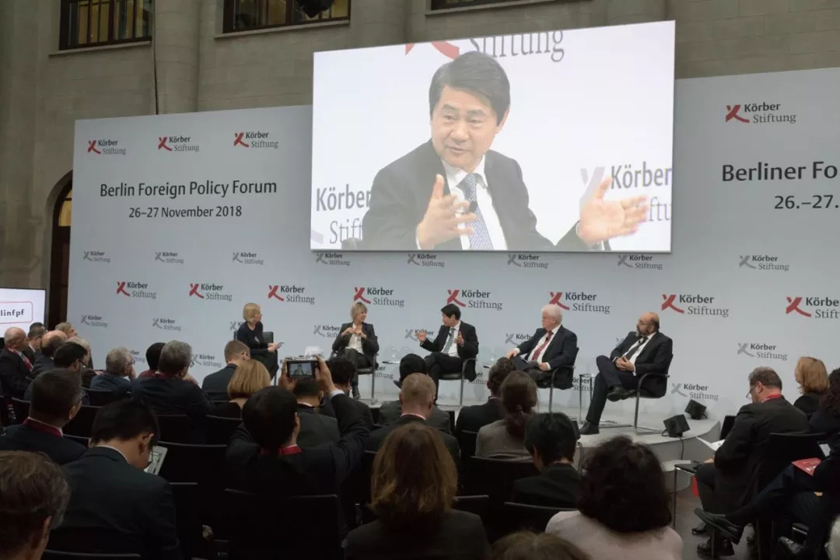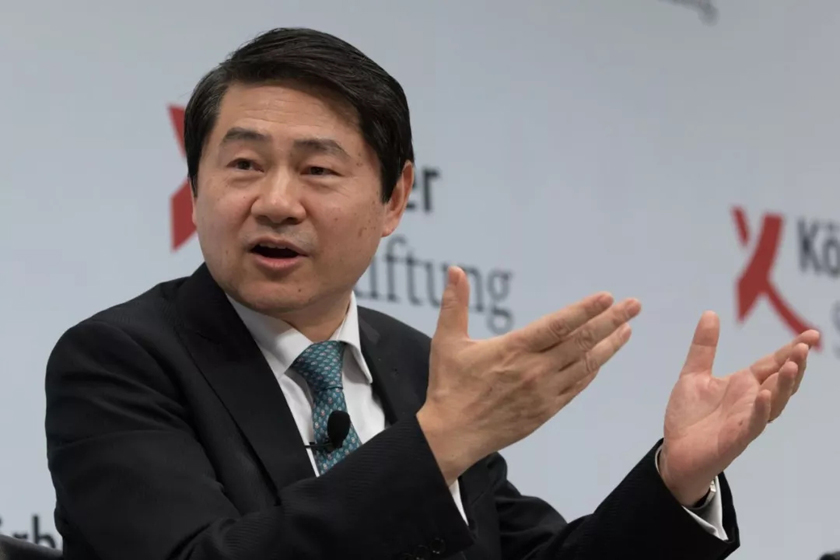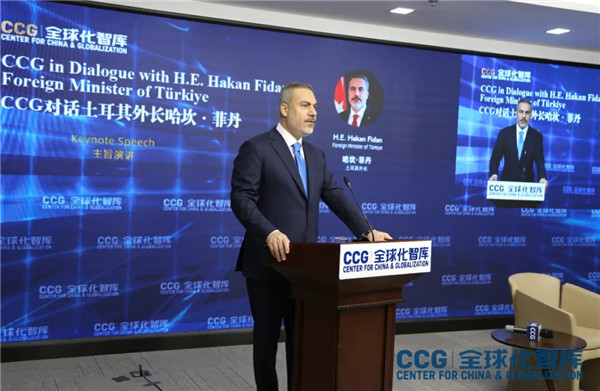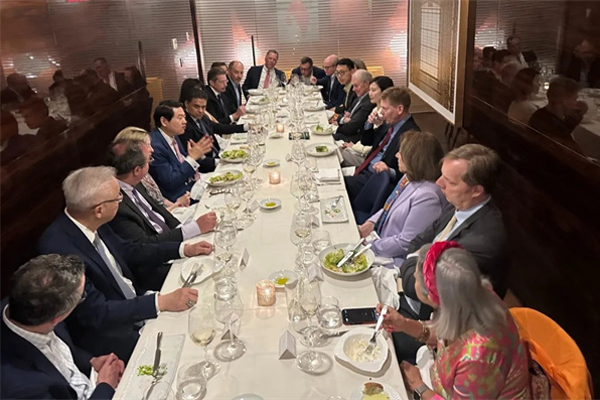CCG attends 2018 Berlin Foreign Policy Forum to discuss global order and Europe’s future

On November 26-27, 2018, during Chinese Vice Premier Liu He’s visit to Germany to attend the 8th China-EU Forum Hamburg Summit, Germany’s körber foundation held the “2018 Berlin Foreign Policy Forum” focused on Europe’s future in a new international order. It brought together dozens of distinguished politicians, scholars and experts from Germany, Slovakia, Russia, Estonia, Britain and France. CCG President Dr. Wang Huiyao was invited to speak at the plenary session about the challenges and governance of global economy in a new era.

At the opening ceremony of the Berlin Foreign Policy Forum, Thomas Paulsen from körber foundation’s Executive Board, German Foreign Minister Heiko Maas and Slovakia Minister of Foreign Affairs and European Affairs Miroslav Laják delivered keynote speecjh. Other attendees include German Defense Minister Ursula von der Leyen, Russian Permanent Representative to the European Union Vladimir Chizhov, Estonian Defense Minister Jüri Luik, NATO Deputy Secretary-General Rose Gottemoeller, British Minister of State for Europe and the Americas Alan Duncan, Chairman of the Commission on Information and Media, Council of Federation, Federal Assembly of the Russian Federation Aleksey Pushkov, Vice Chairman of the Freedom and Democracy Parliamentary Group of the German Bundestag Alexander Graf Lambsdorff, Deputy Director of the Policy Planning staff at France’s Ministry of Foreign and European Affairs Alexandre Escorcia, the representatives from Pew Research Center and International Crisis Group (ICG), scholars from the universities such as Oxford and Princeton, and senior journalists from the mainstream media CNN and Financial Times. in the path of European solidarity, German foreign policy, conflicts between major powers, and Russia going global. The discussion covers a dozen of topics such as Europe’s defense affairs, Middle East’s changing situation, China-EU future relations, AI in cybersecurity and foreign policies, and Turkey’s diplomacy at the crossroads.
At present, the rule-based international order, multilateralism and free trade are increasingly challenged. As the United States prioritizes its own interest, other countries are strengthening their regional and global influence. Whether “non-liberalism” or a new global order will emerge and whether the world will step into a new era of competition for power or even conflict need to be closely watched and analyzed so we can find effective solution.
In the second Plenary Session, titled “Beyond the Free Order – A New Era of Conflicts among Great Powers?”, Dr. Wang Huiyao, founder and Chairman of CCG, shared his view about how to solve the Sino-US trade frictions and promote multilateralism and global cooperation, as well as address the challenges for global governance. He also proposed policy recommendations and innovative programs for maintaining the global order. The panel discussion was hosted by Attorney General of the International Criminal Court of The Hague (ICC) Fatou Bensouda, and attended by the guests that included Vladimir Chizhov, Permanent Representative of the Russian Federation to the European Union; Danielle Pletka, Deputy Director of the Institute of Foreign and Defense Policy of the American Enterprise Institute; Omid Nouripour, Member of the German Bundestag and spokesperson on foreign affairs for the Union 90/Green Party; and Nora Müller, Executive Director of the körber foundation for International Studies, was chaired by Germany.
The conference also arranged a group discussion on “the Future of China-EU Relations” at the luncheon session, hosted by körber foundation’s International Affairs Project Manager Joshua Webb. The panelists include Shi Zhiqin, secretary of the Party Committee at the School of Social Sciences in the Tsinghua University and director of the Department of International Relations; Su Xiaohui, deputy director of the Institute of International Strategy of the China Institute of International Studies; Zhang Weiwei, dean of the China Research Institute in the Fudan University.
The körber foundation has been consistently working to promote mutual understanding between China and Europe. In March 2014, President Xi Jinping was invited by the foundation to deliver an important speech in Berlin. China and Germany are strategic partners at all fronts. China and Europe are also both strong supporters of free trade and multilateral systems. The participation in the annual Berlin Policy Forum gives CCG an opportunity to better promote global governance as global order is going through a turbulent time and to strengthen its communication and international cooperation with European countries. Through this opportunity, CCG has played a more significant role of “Track II Diplomacy” and give Chinese think tanks more voice in the maintenance of multilateralism and free trade and the building of an open economy.





